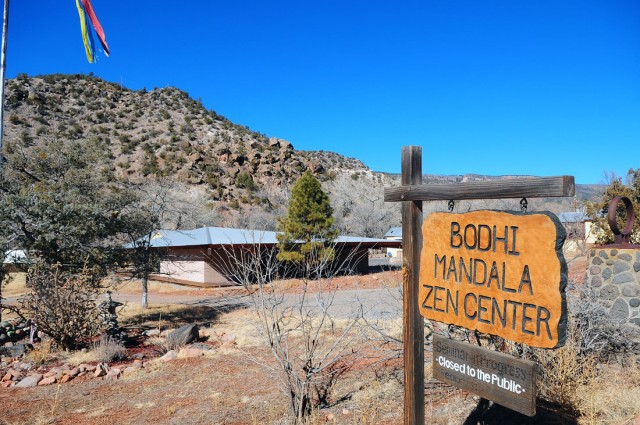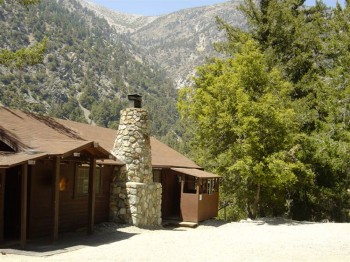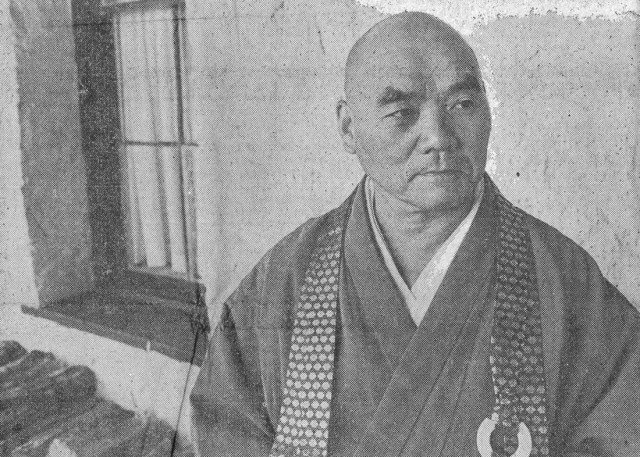Zen ‘master’ Molested Students in N.M.
By Mike Gallagher
A leading Zen Buddhist spiritual leader and teacher sexually abused female students in New Mexico and California for more than 50 years under the guise of Zen teachings, an independent commission of Buddhist leaders has concluded. The allegations against 105-year-old Joshu Sasaki Roshi (“Roshi” roughly translates to “master”) range from fondling adult female students’ breasts to sexual intercourse during one-on-one study sessions over many years. The allegations came up time and again beginning in the 1960s and critics, including former followers, say the misconduct was covered up. Since arriving in the United States from Japan in the early 1960s, Sasaki and his followers established Zen Buddhist centers and retreat houses in Los Angeles, Mount Baldy outside Los Angeles, Albuquerque, Jemez Springs and more than 25 locations throughout the United States, Canada and Europe. The alleged sexual assaults occurred primarily at the retreat houses at Mount Baldy and at the Bodhi Manda Zen Center at Jemez Springs — which is down the road from the now infamous headquarters for the Servants of the Paraclete, the religious order that treated Catholic priest sex abusers before they were returned to parishes. The Bodhi Manda Zen Center has been affiliated with the University of New Mexico summer seminar on Buddhism for many years. There have been no formal allegations that UNM students are among Sasaki’s victims. The UNM Philosophy Department has held a summer seminar at the Bodhi Manda Zen Center at Jemez Springs for 30 years. But university spokeswoman Cinnamon Blair said the department decided to cancel this year’s summer class when the allegations against Sasaki emerged on a website — SweepingZen — and the senior teachers in Sasaki’s religious order admitted the decadeslong problem. In the past, more than 30 students would sign up for the seminar and that has dwindled to around seven students.
“There also seems to have been a drop-off in interest in the program,” Blair said. Members of the Philosophy Department were informed of one allegation of sexual misconduct in 2007, but there was no lawsuit or official complaint. “They did inform the staff at the center that no UNM student should have any personal access to Sasaki,” Blair said. Sasaki attended lectures during the seminar, but in recent years needed aid to physically move from room to room at the center. Albuquerque’s Bosque School cancelled this year’s weeklong program in which students in grades 9 through 12 could spend a week of “Zen Immersion” at the Bodhi Manda Zen Center in Jemez Springs. Bosque School Communications Director Marisa Gay said the program was cancelled after the issues surrounding Sasaki came to light. “The small group of students who attended were accompanied by teachers at all times,” Gay said. “We’ve never had a problem come up.” Sasaki, who lives in California, reportedly stopped teaching last year following an illness from which he apparently hasn’t recovered. Exposed The first public allegation of sexual misconduct was posted last November on SweepingZen.com, by Eshu Martin, a former student of Sasaki’s and now the abbot of the Victoria Zen Center on Vancouver Island, in British Columbia, Canada. Since Martin’s email post in November, documents posted by others show, and as Sasaki’s own council of senior priests admits, Sasaki’s sexual assaults occurred over five decades. Martin said he wanted to call Sasaki to account while he was still alive. “Sasaki is a legend. That is why I felt it so important to talk about it now,” Martin told the Journal in an email. “You really can’t touch a dead legend.” Martin said he expected vehement personal attacks against him for raising the issue but was surprised by the “many, many” emails and messages of gratitude from victims of Sasaki’s abuse. In response to Martin’s public letter and many others that followed, a three-member “Bearing Witness Council” of Buddhist teachers from Buddhist organizations not connected to Sasaki was formed in November to investigate. The council concluded Sasaki’s sexual assaults occurred and his attempts to explain them to students as part of his teachings were counter to Buddhist tradition. In early January, the senior teachers of Sasaki’s community admitted in an on-line statement that the community “has struggled with our teacher Joshu Sasaki Roshi’s sexual misconduct for a significant portion of his career in the United States.” In the open letter to “our fellow practitioners and the American Buddhist community,” Sasaki’s council of priests stated, “We fully acknowledge now, without any reservation, and with the heaviest of hearts, that because of our failure to address our teacher’s sexual misconduct, women and also men have been hurt, women and men who trusted us with their Zen practices and whose trust we failed to honor in a fundamental way.” But Martin and others point out that none of the council members signed the letter and no one close to Sasaki has resigned. That to Martin indicates a 50-year coverup will continue. “They say Joshu Sasaki is no longer teaching,” Martin told the Journal. “While he may not be doing any kind of temple functions or meeting with students, it is very clear he is still absolutely in control of the operational functions.” Specifics about abuse According to the Witness Council, there have been reports for decades within the Buddhist community that Sasaki was involved in sexual misconduct with adult female students. During one-on-one teaching sessions known as sanzen, Sasaki reached into women’s robes to touch their breasts, drew their hands into his robes to touch his penis and in some cases asked them or forced them to give him oral sex or have intercourse with them. The sanzen took place during retreats at either Mount Baldy in California or the Bodhi Manda Zen Center at Jemez Springs. Students were referred to the retreats to further their progress in understanding Buddhist teaching by the Zen centers. During the retreats, students would meet with Sasaki four times a day in confidential one-on-one sessions. These sessions with both male and female students could last a few seconds to a much longer time, and it was Sasaki who decided how long they lasted. During these sessions Sasaki would ask a koan or question of the student to see if their answer indicated they had broken through their ego into enlightenment. A great deal of importance is placed on these private sessions. At various points in time, monks at the retreat centers or the local centers would warn female students that Sasaki might try to sexually assault them and that it was “okay” to resist. But there was no general outcry to Sasaki’s behavior and few reports reached law enforcement authorities. Monk speaks out In 1997, Brian Lesage was a young monk studying at the Mount Baldy Zen Center in California. Joshu Sasaki’s sexual abuse of female students had reached a level where younger monks and nuns spent long hours discussing the problem, Lesage said in a telephone interview. “We reached out by phone to other students and victims,” Lesage said. “It was horrible what happened to these women.” In December 1997, Lesage and other monks and nuns sent an unsigned letter to Sasaki objecting to his sexual misconduct. Part of the letter states, “With sadness and confusion we have struggled with your sexual behavior toward women.” Later the letter states, “We have talked to many of your women students who have told us they suffered for years and suffer still as a result of your behavior.” The response from a senior priest, Lesage said, “If you don’t like what’s going on, leave.” “If I was the person I am now, I would have. But I was young and foolish and didn’t leave until several years later,” he said. The Oshos (priests) told the monks and nuns they would warn female students of Sasaki’s sexual overtures and advise them to resist. “There was a lot of overly simplistic thinking,” Lesage said. “He (Sasaki) was manipulative, threatening to resign, if people persisted in making him stop.” Lesage, like others interviewed by the Journal, said Sasaki was a gifted teacher and created what amounted to a personality cult. There was no forum within the community for people who were or felt abused to go to with complaints. “What he did was illegal,” Lesage said. “It was as simple as that.” Center head leaves In July 1992, Kosan Gentei Sandy Stewart, head of a Zen center in North Carolina, declared his independence from Sasaki Roshi in a letter to Sasaki and his board of directors. Among the reasons for his decision: “my objection to the sexual behavior and sexual teaching techniques of the Head Abbot (Sasaki).” Among other factors was “the lack of regulations in the organization with respect to inappropriate sexual behavior between teachers and students.” Assured that Sasaki’s sexual abuse had stopped, Stewart rejoined Sasaki’s community, only to quit again in 2007 when he discovered Sasaki continued his “forceful unwanted sexual behavior with some of his female students.” He and his Zen Center in North Carolina again cut off all ties with Sasaki’s organization. In an email exchange with the Journal, Stewart said, “I heard that Sasaki Roshi was reported to the Los Angeles District Attorney in the early 1970s, but nothing came of it. Also, I heard that in the mid-1980s, there were several reports on file at the Rape Crisis Center in Santa Fe. Again, nothing happened.” Stewart credits the Internet with finally bringing Sasaki’s sexual misconduct into the public light. His wife was also a student of Sasaki’s and had first-hand experience fending off his unwanted sexual advances and groping. In a letter to the board of directors of the Rinzai community, she called on them to resign. “You have also demonstrated your abject lack of understanding of the effect of Sasaki’s sexual misconduct on the lives of the women involved,” she wrote. Witness Council The Bearing Witness Council that issued a report concluding the allegations of Sasaki’s sexual assaults were true did not have any investigatory powers. It received testimonial evidence by way of emails and telephone conversations with female victims and male students, priests and others who were familiar with other allegations. The Witness Council did not attempt to investigate the individual allegations made by 10 women and 13 men who were at one time or another practitioners of the Zen Buddhist teachings of Sasaki from the 1960s through 2012. The Witness Council found there were consistent reports of sexual behavior by Joshu Sasaki, often initiated in the formal setting and privacy of face-to-face encounters between Sasaki and female students. Sasaki allegedly asked women to show him their breasts and other physical advances followed. The council found that some women repelled his advances, but others were physically overwhelmed and the sexual contact became more physical ending in some cases with oral sex or intercourse. All of those allegations involved women, but there was one report of Sasaki having a sexual encounter with an underage girl. The council found that Sasaki framed the sexual contacts as Zen teaching or beneficial. The council also concluded that Sasaki retaliated against senior students or threatened to resign if they took action to reveal or stop his sexual behavior. There are no current criminal investigations of the sexual assault allegations involving Sasaki. A spokesman for the District Attorney’s Office for Sandoval County said the office had no active case files or complaints. Phil Sisneros, a spokesman for New Mexico Attorney General Gary King, said all his office received was an anonymous letter asking for an investigation of sexual offenses at an unspecified location in Sandoval County. “Other than a list of people who supposedly have information on the alleged crimes,” Sisneros said, “there was no mention of any victim who would come forward to file a complaint.” Sisneros said anyone who was victimized needs to contact the District Attorney’s Office in Sandoval County.
Sasaki Roshi Became A Buddhist Rock Star Joshu Sasaki is a member of the Rinzai lineage of Zen Buddhism that originates in Japan and as a Roshi, or “master,” has the authority to ordain priests or Oshos. It is one of many lineages of Buddhism that originated 2,600 years ago in Nepal and India. Sasaki was sent to the United States in the early 1960s by the largest Rinzai temple in Japan in response to a request by a community of Buddhists in southern Californian seeking a teacher. At that time, Sasaki was not well known and his past in Japan includes allegations of fathering children out of wedlock and getting locked up for mishandling temple funds. Once in the U.S., Sasaki became something of a Buddhist rock star, traveling across the United States and Canada, establishing Zen Centers teaching the Rinzai lineage. The type of Buddhism Sasaki teaches is one of the more militant branches of the religion and is associated with the Samurai warrior class of feudal Japan. The singer-songwriter Leonard Cohen is one of his famous students. — This article appeared on page A1 of the Albuquerque Journal
|
.
Any original material on these pages is copyright © BishopAccountability.org 2004. Reproduce freely with attribution.


